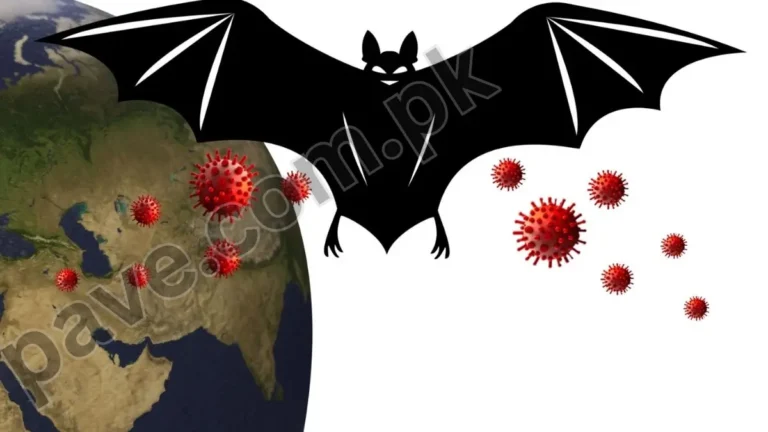PM Announces PAVE Scheme Phase 2 – 60% Subsidy Under NEV Policy 2025–2030

The Government of Pakistan has taken another big step toward promoting clean and green mobility. PM Announces PAVE Scheme Phase 2 marks a new chapter in the country’s journey toward sustainable transportation. Under the NEV Policy 2025–2030 Pakistan, the Engineering Development Board (EDB) and the Ministry of Industries and Production have officially begun preparations for the Pakistan Accelerated Vehicle Electrification Scheme 2025–26. This initiative aims to make locally manufactured electric motorcycles, scooters, and rickshaws affordable for the public while supporting Pakistan’s long-term environmental goals.
The new phase promises a 60% subsidy on electric bikes and rickshaws, helping both individuals and small businesses transition to eco-friendly transport options. This is not only an environmental step forward but also an opportunity to strengthen the local electric vehicle industry.
PAVE Phase Scheme 2 Overview
According to official sources, the Pakistan Accelerated Vehicle Electrification (PAVE) Scheme is a five-year program (FY 2025–2030) designed to expand the use of electric vehicles in Pakistan. The government aims to introduce over 2 million electric motorcycles and scooters and around 50,000 electric rickshaws and cargo loaders during this period.
To support this mission, the government is offering incentives such as financial subsidies, tax relief, and a quality-based approval system to ensure safety and reliability. The increasing number of applications received from manufacturers and consumers shows growing confidence in Pakistan’s electric mobility future.
Read More: PAVE Balloting Result Waiting List 2025
EDB’s Role in Implementation
The Engineering Development Board (EDB) Pakistan, operating under the Ministry of Industries and Production, is leading the implementation of this scheme. EDB is responsible for coordinating with local manufacturers, monitoring production quality, and ensuring that electric vehicles meet the required safety and environmental standards.
The EDB plans to launch PAVE Scheme Phase 2 officially in November 2025. During this phase, approximately 76,000 electric motorcycles and scooters, along with 2,170 electric rickshaws and cargo loaders, will be distributed under the government subsidy program.
The EDB is prioritizing:
- Strict compliance with quality and safety standards.
- Promotion of local manufacturing and value addition.
- Support for innovation in electric vehicle technology.
- Collaboration with provincial and local authorities for distribution transparency.
These steps align with the NEV Policy 2025–2030 Pakistan, which aims to establish a strong, competitive, and self-sustaining EV industry within the country.
NEV Policy 2025–2030 Pakistan: A Green Revolution
The NEV Policy 2025–2030 Pakistan serves as a long-term roadmap for transitioning from traditional fuel-based transportation to clean electric mobility. It focuses on reducing greenhouse gas emissions, saving fuel imports, and supporting green economic growth.
Key Objectives of NEV Policy 2025–2030:
- Promotion of eco-friendly electric vehicles across all sectors.
- Encouragement of local assembly and manufacturing units.
- Establishment of battery recycling and charging infrastructure.
- Providing financial incentives and subsidies for consumers.
- Enhancing research and development capacity in the EV sector.
This initiative directly contributes to the Clean Mobility Program Pakistan, ensuring that future transport is sustainable, efficient, and environmentally responsible.
Electric Motorcycle and Scooter Subsidy 2025
The government’s Electric Motorcycle and Scooter Subsidy 2025 is one of the most awaited programs for young people, delivery services, and middle-income families. With up to 60% subsidy, consumers will be able to buy electric bikes at significantly lower prices.
This move will:
- Reduce daily fuel expenses for citizens.
- Minimize pollution in major cities like Lahore, Karachi, and Islamabad.
- Encourage youth entrepreneurship through delivery-based startups.
- Create employment opportunities in the EV industry.
The EDB is also working with the Engineering Development Board (EDB) Pakistan and private manufacturers to streamline production and ensure the availability of reliable, affordable EV models in the local market.
Electric Rickshaw and Cargo Loader Scheme
The Electric Rickshaw and Cargo Loader Scheme will provide opportunities for thousands of small business owners and transport workers to switch to electric alternatives. These vehicles are more economical, require less maintenance, and have zero emissions.
Under PAVE Scheme Phase 2, 2,170 electric rickshaws and cargo loaders will be provided with government support. The scheme will target:
- Small transport businesses.
- Urban delivery companies.
- Women entrepreneurs in rural areas.
This initiative strengthens the Green Transport Initiative Pakistan, promoting clean public and goods transport options.
Transparency and Monitoring
Transparency is a key part of the PAVE Scheme Second Phase Launch News. The first phase was executed with the help of the Punjab Information Technology Board (PITB) through a secure digital platform. The same digital mechanism will be used again to conduct fair electronic balloting for new applicants.
Additionally, all Original Equipment Manufacturers (OEMs) will go through a third-party pre-qualification process, verified by an independent body to ensure fairness, technical compliance, and product reliability.
Collaboration and Industry Participation
EDB has invited all interested companies engaged in the manufacturing of electric motorcycles, scooters, rickshaws, and cargo loaders to submit their participation confirmations. This will help complete the pre-qualification and evaluation process on time.
The board has appreciated all qualified and certified Original Equipment Manufacturers (OEMs) who actively participated in the first phase. Their cooperation ensured the success of the earlier phase and strengthened Pakistan’s EV development ecosystem.
Green Transport Initiative Pakistan: Toward a Sustainable Future
Through the Green Transport Initiative Pakistan, the government aims to replace traditional fuel-based vehicles with electric alternatives. This not only helps reduce air pollution but also cuts dependency on imported fuel, saving billions for the national economy.
The Clean Mobility Program Pakistan complements this goal by creating public awareness about electric vehicles, charging systems, and long-term cost savings. Together, these programs aim to transform Pakistan’s transportation landscape by 2030.
Economic and Environmental Impact
The PAVE Scheme Phase 2 program will have a long-term impact on both the economy and the environment. Key expected benefits include:
- Lower fuel import bills and reduced foreign exchange pressure.
- Creation of new jobs in the manufacturing, maintenance, and EV service sectors.
- Decrease in air and noise pollution levels.
- Encouragement of innovation in renewable energy and battery technologies.
This project supports Pakistan’s global commitments to climate change mitigation and aligns with the Sustainable Development Goals (SDGs).
Read More: PAVE Application Completion Guide
FAQs
1. What is PAVE Scheme Phase 2?
PAVE Phase 2 is the second stage of the Pakistan Accelerated Vehicle Electrification Scheme 2025–26, aiming to provide subsidized electric motorcycles and rickshaws under the NEV Policy 2030.
2. How much subsidy will the government provide?
The government is offering a 60% subsidy on electric motorcycles, scooters, and rickshaws to make EVs more affordable for citizens.
3. Who is managing the program?
The program is being managed by the Engineering Development Board (EDB) Pakistan under the Ministry of Industries and Production.
4. When will Phase 2 start?
According to EDB, Phase 2 will officially begin in November 2025 with applications opening shortly before that date.
5. How can companies participate in the scheme?
Manufacturers and dealers can apply for pre-qualification through the EDB’s official process before production and distribution begin.
Conclusion
The announcement of PAVE Scheme Phase 2 under the NEV Policy 2025–2030 Pakistan reflects the government’s strong commitment to green and sustainable transport. With the active role of the Engineering Development Board EDB Pakistan, the Electric Motorcycle and Scooter Subsidy 2025 and Electric Rickshaw and Cargo Loader Scheme will transform the local transport landscape.
This initiative not only empowers individuals with affordable, eco-friendly mobility options but also positions Pakistan as a regional leader in clean technology. By 2030, through continuous collaboration, innovation, and responsible policy-making, Pakistan will move closer to achieving a fully electrified and sustainable transport system.










